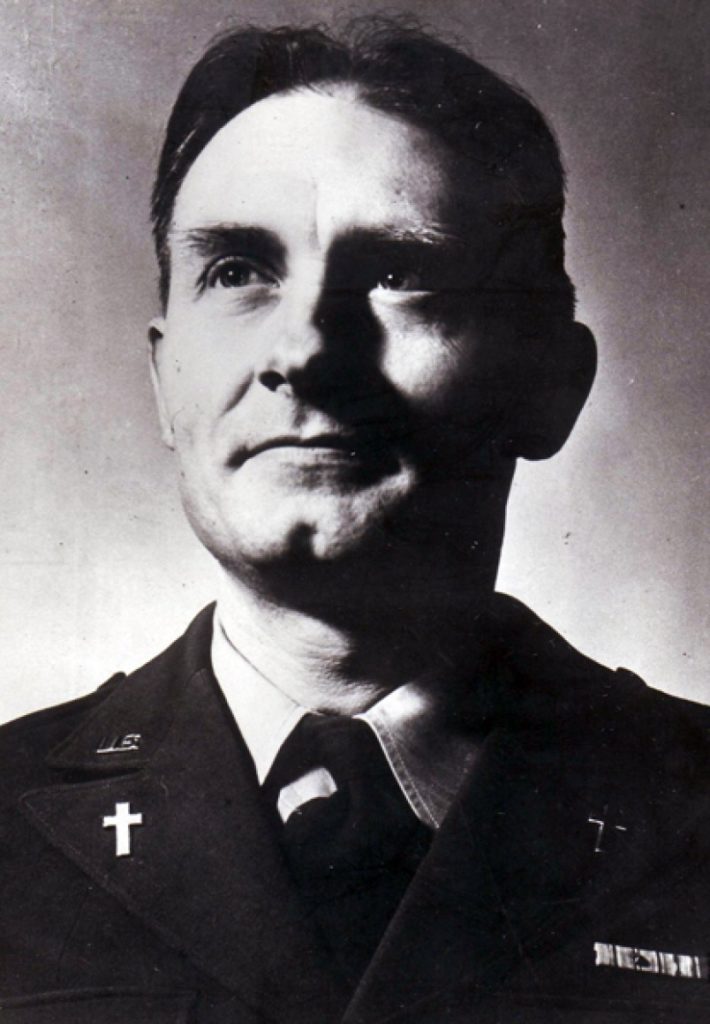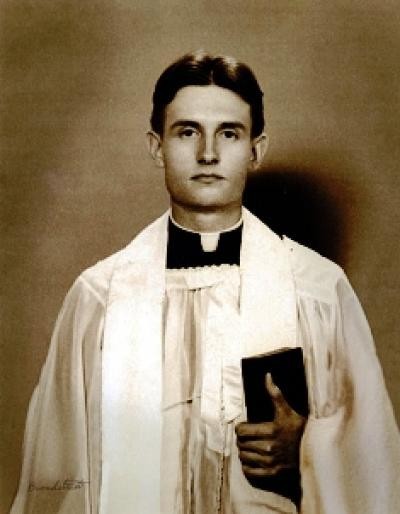The Defense POW/MIA Accounting Agency announced today that the remains of Korean War Medal of Honor recipient Army Chaplain Captain Emil Joseph Kapaun have been accounted for, almost 70 years after his death.
Ordained a Catholic priest in 1940, the Kansas native joined the U.S. Army Chaplain Corps in 1944, serving in the Burma and India Theater until his discharge in 1946.
Two years later, Kapaun decided to reenlist and was sent to Korea in 1950, serving as a chaplain with the 3rd Battalion, 8th Cavalry Regiment, 1st Cavalry Division.
On November 2nd of that year, the 3rd Battalion was near the town of Unsan when the enemy ambushed the unit with withering fire and quickly surrounded it. Unable to withdraw, trapped American soldiers began digging foxholes and taking cover behind bunkers.
According to Kapaun’s citation, the chaplain “repeatedly exposed himself to enemy fire to recover wounded men, dragging them to safety. When he couldn’t drag them, he dug shallow trenches to shield them from enemy fire. As Chinese forces closed in, Kapaun rejected several chances to escape, instead volunteering to stay behind and care for the wounded.”

Forced on a death march north, POWs who dropped out of line were instantly shot by the Chinese. Kapaun, however, appeared indefatigable.
“He was carrying a soldier on his back,” former POW Mike Dowe recalled in 2013. “I think he carried him for about two or three miles and then I relieved him.”
“It was imperative to keep the people, as many as you could, going. He was material in that,” Dowe continued.
Despite the grim living conditions at what was later dubbed Chinese Camp 5, Kapaun continued to be a source of strength for American POWs — foraging for food, caring for the sick and wounded, and even washing the clothes of the dead to give to men who were freezing in the oft-sub-zero temperatures.
“In the valley that [Kapaun] lived in, the death rate was about one-third what it was in the other two [POW camps], just because of the way he instilled a spirit of cooperation, will to live, and resistance to the enemy,” Dowe said.
When Kapaun fell seriously ill after nearly seven months of brutal incarceration, his captors jumped at the chance to rid themselves of the chaplain. Taken to what other POWs described as the “death house” by the Chinese, both Kapaun and his fellow POWs understood that he had days, if not hours to live.

“He said, ‘Don’t worry about me, Mike. You guys take it easy. I’m going to where I always wanted to go. When I get there, I’ll say a prayer for you,'” Dowe recalled.
On May 23, 1951, Kapaun died in the valleys of North Korea.
The chaplain’s legacy, however, was kept alive by the men from Chinese Camp 5.
Dowe and other former POWs lobbied for decades to have Kapaun’s service recognized. In 1993 Pope John Paul II declared Chaplain Kapaun a servant of God, the first stage on the path to canonization after death.
And finally, in a ceremony at the White House in April 2013, Kapaun was posthumously awarded the Medal of Honor by then-President Barack Obama.
About 7,500 service members who served in the Korean War remain unaccounted for, according to the Defense POW/MIA Accounting Agency.
“After 70 years Chaplain (Capt.) Kapaun has been accounted for. His heroism and resilient spirit epitomized our Army values of personal courage and selfless service,” said acting Secretary of the Army John E. Whitley.
Chief of Staff of the Army James C. McConville stated that recovering the remains Chaplain Kapaun, reaffirms our commitment to never leaving a fallen comrade.”





